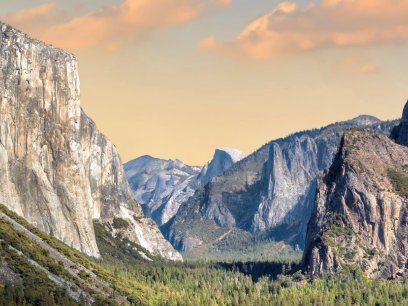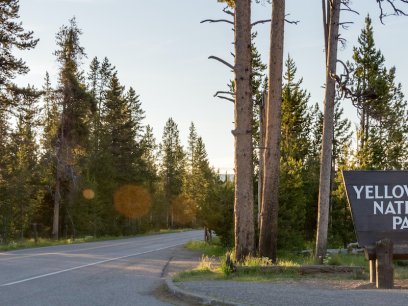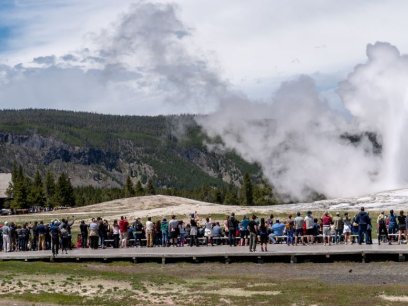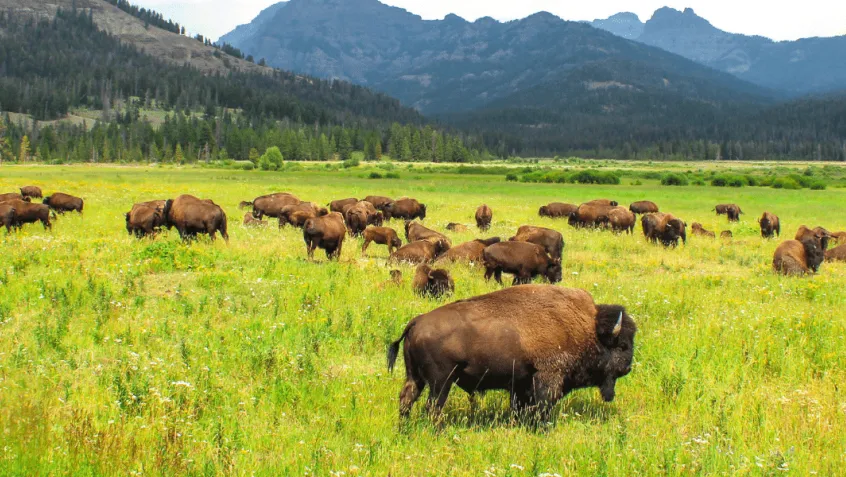
As a citizen of the Apsáalooke Nation, people who have long lived in the region in and near today's Yellowstone National Park, I have an intimate relationship with national parks.
Yellowstone was founded in 1872. The land of course existed before that time, and my people, as well as many others, have long-standing relationships with the land and its inhabitants. When we acknowledge the land, we are acknowledging more than just the land and the human beings who consider the land their homeland—we are including the ecosystem that can be represented by the land. When we are on the land, we are part of that system.
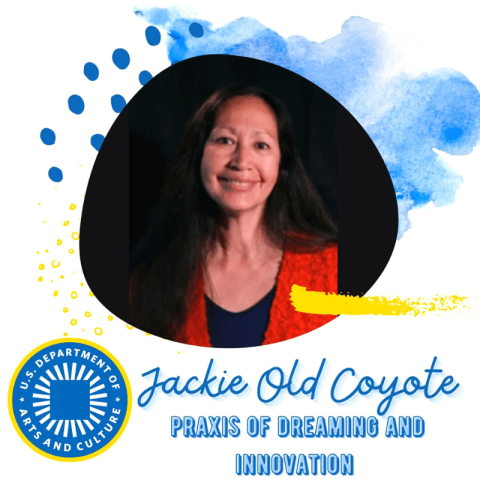
As we collectively celebrate “Giving Back Together” on National Public Lands Day, I will focus on a more personal element to this effort.
When I was a young girl, my family traveled all across the United States. My father almost always acknowledged the land we left and the new land we encountered. When he acknowledged places he included the people, the so-called “wildlife,” and the elements, both natural and supernatural.
We often made treks into the boundaries of Yellowstone National Park. I grew up learning—and later, knowing—the significant sites for my people. Places where events involving legendary Apsáalooke people transpired and became larger than life experiences. The land within the park boundaries is quite magical, some may even say mystical, and by all accounts, most certainly significant.
Of course, as a young girl, I enjoyed the tourism elements, too; seeing black bears climbing on vehicles was a favorite. (This is now a thing of the past because we are learning much about conservation.) But most of all, for our family, Yellowstone Park was a place to remember significant cultural places and events. We also learned about the medicinal qualities the park harbors.
We grew in our knowledge and experiences with the park and its system—the same ecosystem we encourage you to experience and become a significant part of. We learned from my father how to offer acknowledgements. For some of us, our relationship blossomed to the point that we learned how to make offerings in specific places. These offerings are part of our way of acknowledging the elements and powers that be, just as my father taught us. We can learn to have reciprocal relationships, to respectfully offer something when you are receiving something.
One day, as a grown woman, I overheard my father being interviewed by someone and asking about Yellowstone National Park, and the significance of it for the Apsáalooke. His response was much more detailed and involved than I will go into now. For me, what stood out was his telling of how his children have personal relationships with the land. He said, “Sometimes we will be traveling through and at certain places they will pull over and go into the landscape. What they do in there, I don't know, but I know they stop and do something.”
I was struck with his comment—of course he knew what we did there, he is the one who fostered our understanding and relationship with these places. Perhaps some of his reticence to share in a public manner was due to the spiritual responsibilities that belong to Indigenous peoples. For certain, it was then that I fully realized he helped us form collective and individual relationships with these powerful places. Together, and individually, we acknowledge and engage with this system.
Because you are participating in the National Public Lands Day celebration, I imagine that you already know how to read the signs and respectfully follow the rules designed for us to preserve and protect the lands. This is a good beginning. As you grow with your understanding of land acknowledgements, you may be moved to further understand how your personal relationship with our national parks, forests, and waterways contributes to our collective respect and care for the natural world.
As you continue your outdoor exploration, adventures, and journeys, remember our individual experiences can also be part of the collective. We all have interactive relations with our ecosystem, and sometimes, acknowledging their presence is the beginning for us to truly give back. Of course, these rules of engagement are not limited to national parks, but it is in these wonderous lands that have been shielded from extreme commercial development that we can all find solace and learn how to be positive contributors and give back to the system.
Jackie Old Coyote is a #HonorNativeLand Innovator at the US Department of Arts and Culture. Learn more about this grassroots organization working towards equity and environmental justice on public lands by visiting usdac.us.
